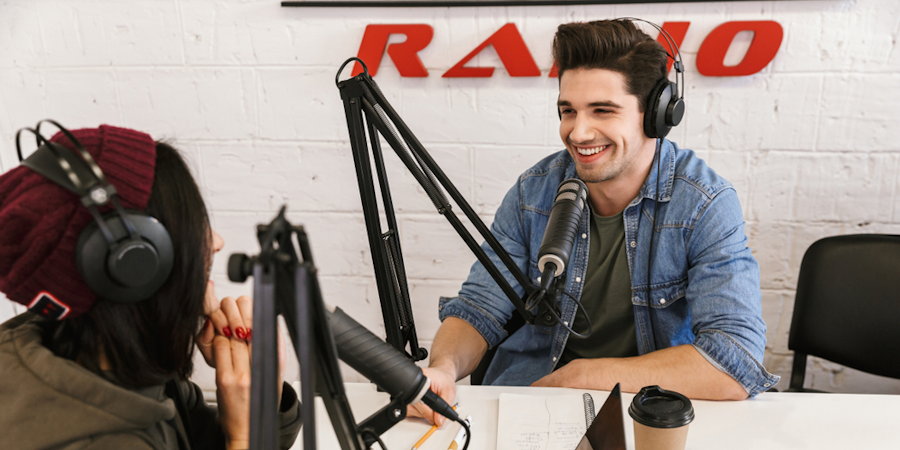
When you think of PR – are you thinking ‘press releases’? There are far more opportunities that are more effective than simply issuing press releases.
Press releases are hard to get published and you’ll need a really good story, not just a business announcement to get past the editor’s spike (the delete button!)
If you’re an expert and have knowledge to share look at your local radio stations. If you’re business-to-business, most radio stations have a drive time show and/or a business slot somewhere in their schedule.
If you’re selling direct to consumers you can find a presenter who is interested in giving their listeners good information. Whether that’s how to make a wedding tree or the latest materials for sports clothes, you don’t have to do a sales pitch, just sharing your knowledge.
How to make the connection
Your local PR agencies will have a list of contacts, but if you want to do it yourself the first thing to do is to listen to the radio station. You need to know what kind of content the various shows feature so you pitch your ideas right, if you’re familiar with the different show formats you’ll find the shows, slots and presenters that are the best place for you to start.
Most radio stations have an online digital feed on their websites and many have the option to replay programmes, so you can skip over the music and listen to the talking bits.
There are usually contact details for the station on the website and sometimes specific emails for different shows or presenters. Bear in mind that well-established stations will have producers for one or more shows and they are often the best contact to approach.
If there isn’t an obvious slot for your idea, but you can see that it would fit into a particular show, you’ll need to put together a pitch – even if it’s in note form for you to talk through on the phone.
The more specific you are about how you could help their audience the better. You’ll need to have a good idea who listens to each show – and there often listener demographics available either online or in their advertising packages.
There has to be a win-win for the station and for their listeners, so be clear about how both of these parties will benefit. Whether you get a slot to just talk or you’re interviewed by the presenter, ensure you keep this in mind.
Top 3 tips for radio
- Be flexible about time – turn up in plenty of time and be prepared for the occasional delay if new breaks or something comes up that pushes your slot back a bit.
- Talk clearly and a bit slower than you would in normal conversation, but not too slowly or you’ll lose the energy of your message.
- Don’t chat with the presenter during off-air time (i.e. during music, ads or pre-records) unless they instigate it. They will have other things to do, clips to schedule and may be watching one or more screens to ensure everything goes smoothly. They’ll let you know when it’s OK to talk – either off air or on air – there’s usually a red light that indicates you’re live.
Once you’ve done this once on one station and ticked their boxes, they’ll be open to you coming back again. Smaller local stations may even be interested in a regular weekly or monthly slot if you can deliver great quality material regularly.
